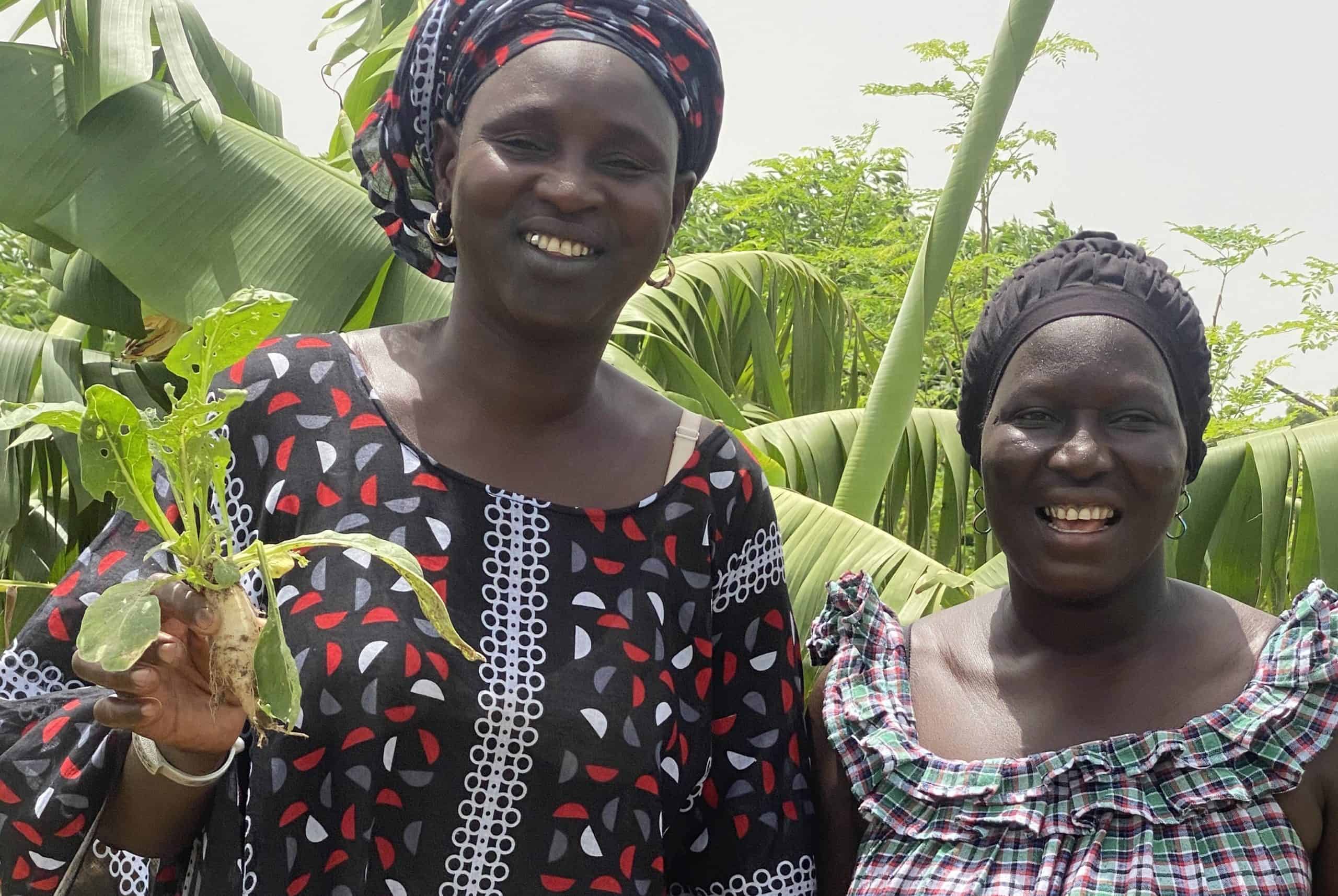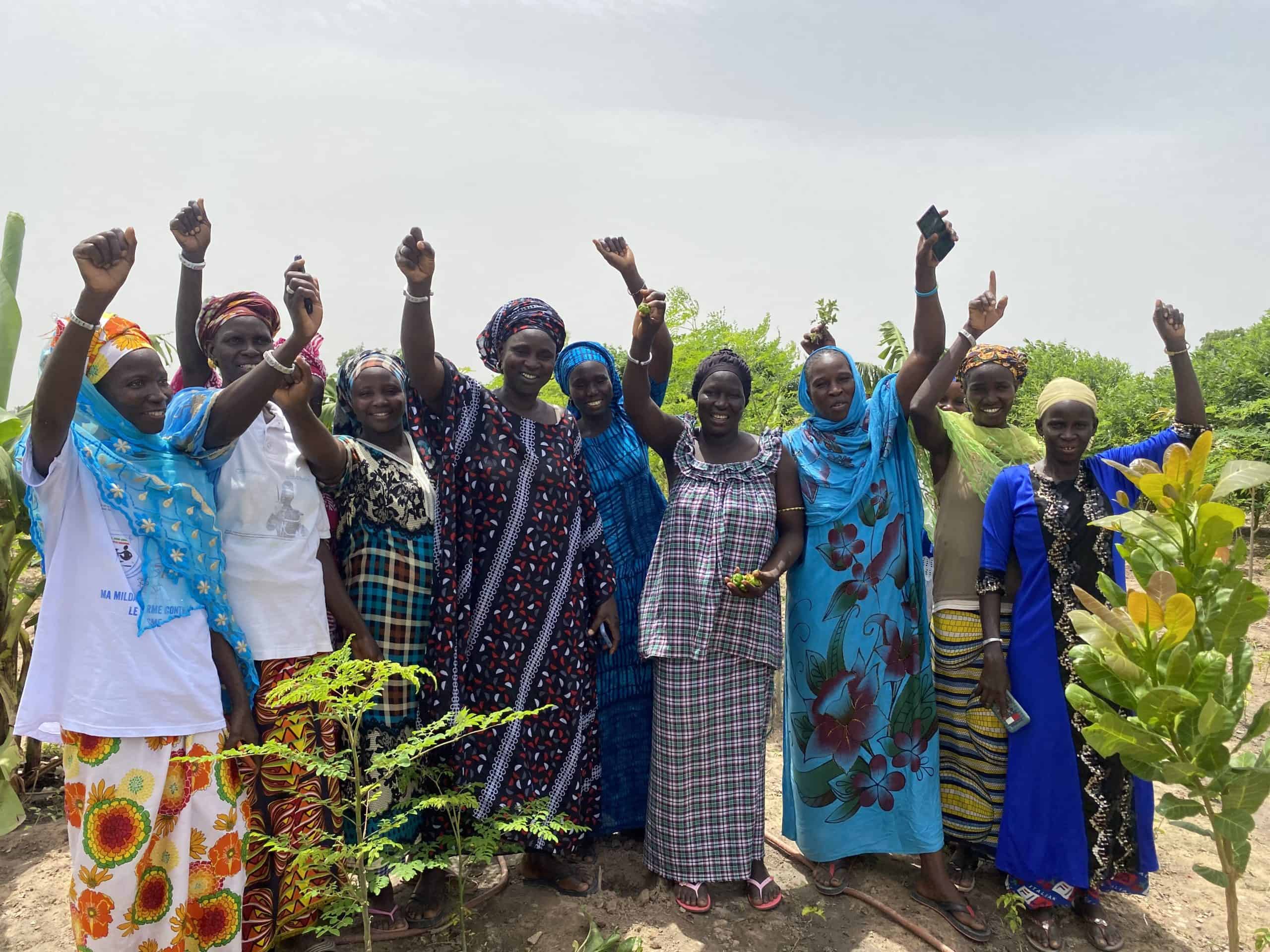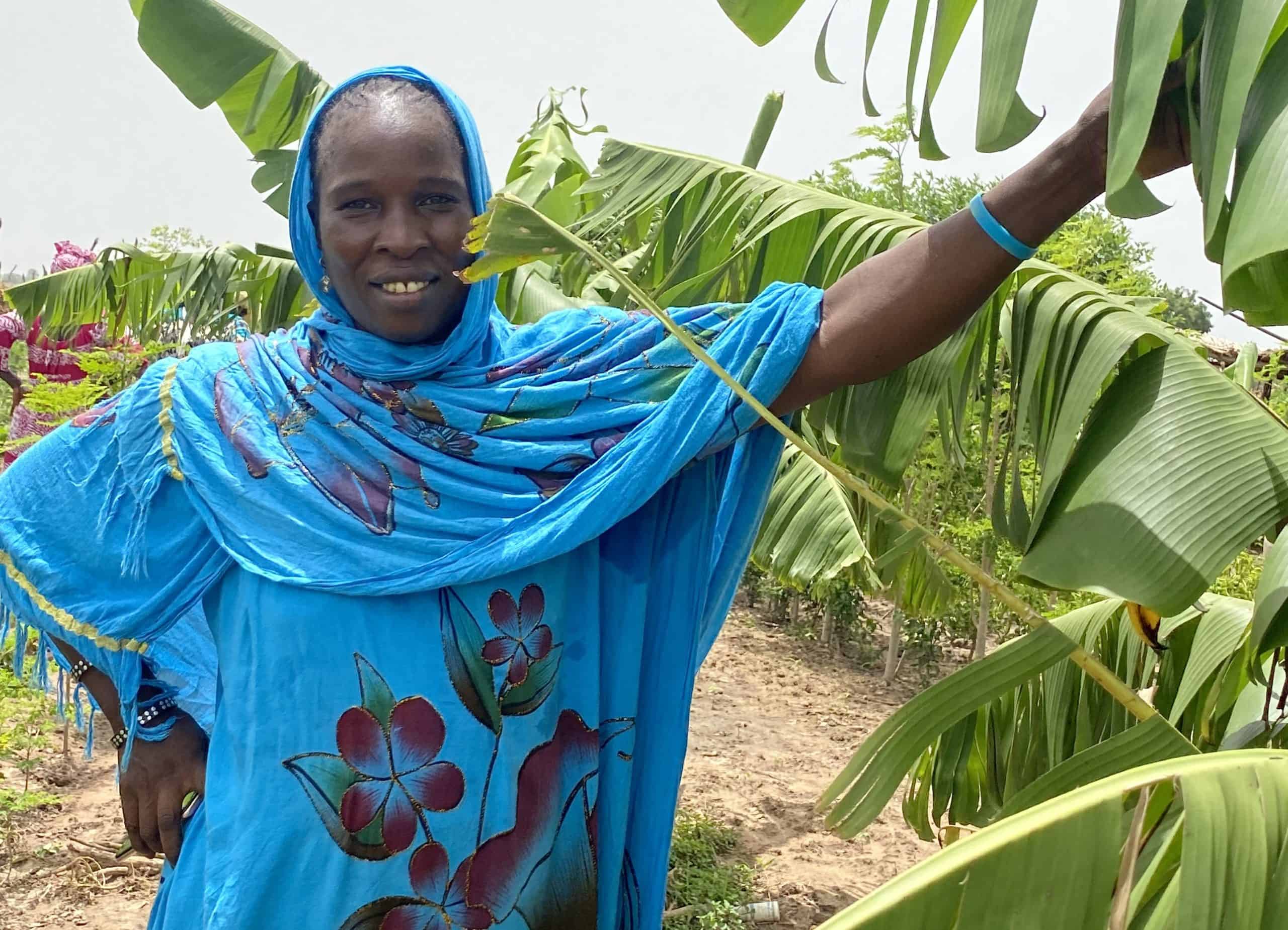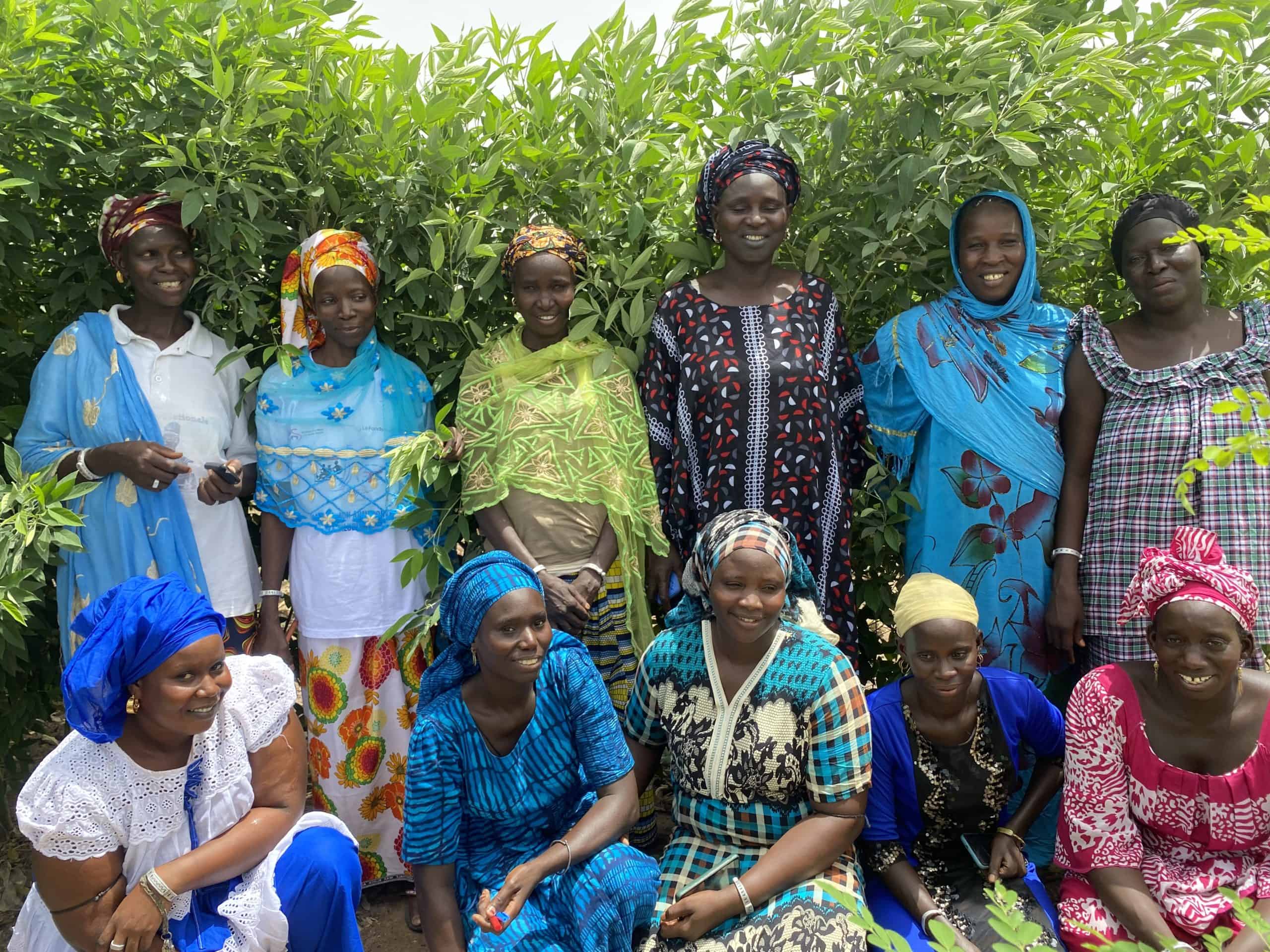In Koungheul, Senegal, 50 women have achieved food access for themselves and their families in under three years.
“We grow papaya, okra, moringa, cabbage, lemon, eggplant,” says Khodia Mbaye.

Khodia, left, joined Trees for the Future’s training program alongside 49 other women in her village.
Making Space for Women in Senegal’s Agriculture Industry
Khodia and her fellow farmers joined Trees for the Future’s (TREES) training program in 2019. TREES trains farmers in a sustainable agroforestry technique called the Forest Garden Approach. Typically, farmers establish their Forest Gardens on their own land.
”When we started working in Kaffrine, many women who did not own land asked to join the training program, so we started looking for the best option to provide them training on land that they could manage,” explains Idrissa Sarr, regional coordinator of TREES
TREES initiated the community Forest Garden concept to be able to bring farmers together on shared pieces of land when cultivating on their own land is not an option. For Khodia’s group, that meant taking up management of a piece of Khodia’s husband’s land. The 50 women have completely transformed the space.
“What started out as a trial run has become a real success. The women of this project have built strong minds of entrepreneurship over the years,” explains Jeanne Catherine Manga, a TREES technician.

Growing Food and Income
In this very dry locality, fresh veggies are rare, but with the TREES program, these farmers are able to produce and sell fresh produce in the market.
“All the food expenses of our families come from these two fields!” says Dié Cissé.
In addition to the nutritional aspect, the women also use the trees from their Forest Gardens for medicinal purposes.
“When a child has the flu, we boil six lemon leaves and he drinks them and it’s over, he doesn’t cough anymore and he heals quickly!” says Sokhna Diop.
“The Forest Garden is our market and our pharmacy!” Dié Cissé adds.

Looking to the Future
The women are exploring opportunities to expand their production and resilience. They have been able to obtain the necessary funds to build two reservoirs in their Forest Gardens and install solar panels.
”TREES [taught] us to be ambitious,” says Khodia.
Khodia and her group will receive training from TREES staff for one more year before graduating from the four-year program. They will continue to manage their two Forest Gardens through the agreement set with the landowner after graduation.
“I take care of this project as if it were my child because my survival and that of my community depend on my garden,” she says.
Help TREES reach more farmers like Khodia, donate today.
